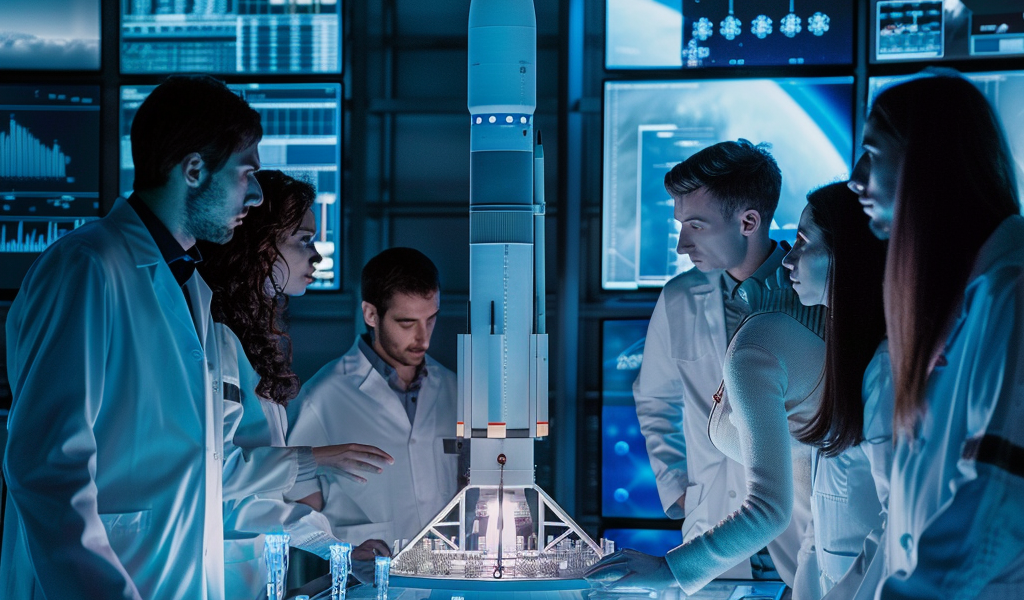The European space sector is at a critical juncture as it faces a rapidly evolving landscape defined by ambitious goals and fierce competition. With recent advancements in space technology, particularly from private and state-backed entities, the urgency for Europe to assert its presence in this new space race has never been more pronounced.
On October 13th, the world witnessed a remarkable achievement as SpaceX’s Super Heavy Starship successfully lifted off, followed by its reusable booster landing back on the launch pad—a pioneering feat that underscores the capabilities of modern aerospace engineering. This event not only highlighted the advancements made by private enterprises but also set a new benchmark for space exploration.
NASA, the United States’ space agency, is gearing up to utilize a human-rated version of the Starship for its upcoming lunar missions. The agency aims to return astronauts to the Moon within the next few years, signaling a renewed commitment to lunar exploration. Meanwhile, China has set its sights on landing humans on the Moon by 2030, showcasing its rapid advancements in space technology. India, not to be left behind, has also announced ambitions to achieve a similar milestone by 2040.
Josef Aschbacher, the Director-General of the European Space Agency (ESA), has articulated the need for Europe to not just participate in this new space race but to emerge as a leader. Aschbacher emphasizes that keeping pace with other nations is insufficient; Europe must adopt a more competitive approach to ensure its relevance in the global space arena.
Aschbacher’s call to action reflects a broader sentiment within the European space community. The agency is actively seeking to enhance its capabilities and foster innovation to compete against the likes of SpaceX, NASA, and China’s ambitious space program. This includes investing in new technologies, fostering public-private partnerships, and enhancing collaboration among European nations.
The competition is not only about reaching the Moon; it encompasses a range of activities including satellite deployment, space exploration, and the burgeoning field of space tourism. The stakes are high, and the potential rewards are immense, prompting European leaders to reconsider their strategies in the face of rapid advancements elsewhere.
ESA’s initiatives are already in motion, with plans to develop its own launch systems and enhance satellite capabilities. The agency is focusing on building a robust infrastructure that can support a wide array of missions, from Earth observation to deep space exploration.
Additionally, the European Union is recognizing the strategic importance of space technology and is increasing its funding for space-related projects. This includes the Horizon Europe program, which aims to bolster research and innovation in various fields, including aerospace.
As Europe navigates this new era of space exploration, the collaboration between member states will be crucial. By pooling resources and expertise, European nations can amplify their efforts and create a unified front in the global space race.
Moreover, the importance of international partnerships cannot be overstated. Collaborating with other nations, including the United States and Japan, can provide Europe with access to new technologies and shared knowledge, enhancing its capabilities and competitiveness.
As the landscape of space exploration continues to evolve, the focus on sustainability and responsible practices is becoming increasingly relevant. The European space sector is committed to addressing these challenges by promoting sustainable practices in space missions and minimizing the environmental impact of space activities.
In summary, Europe stands at a pivotal moment in its space journey. With ambitious goals set by various nations, the call for a strategic and competitive approach from ESA’s leadership is essential. Aschbacher’s vision for a robust European presence in space underscores the urgency for collaboration, innovation, and investment in the coming years.
As the world watches the unfolding developments in space exploration, Europe must rise to the occasion, leveraging its strengths and fostering a spirit of competition to secure its place in the cosmos.





